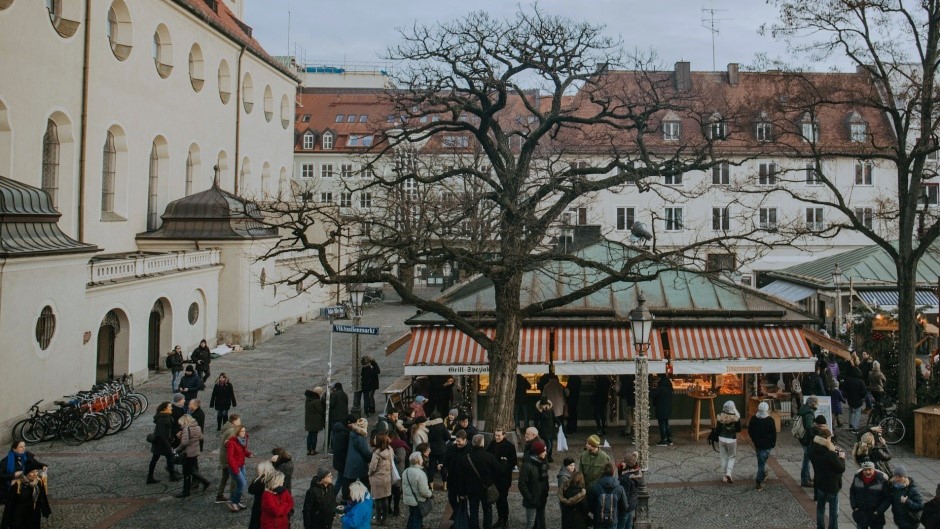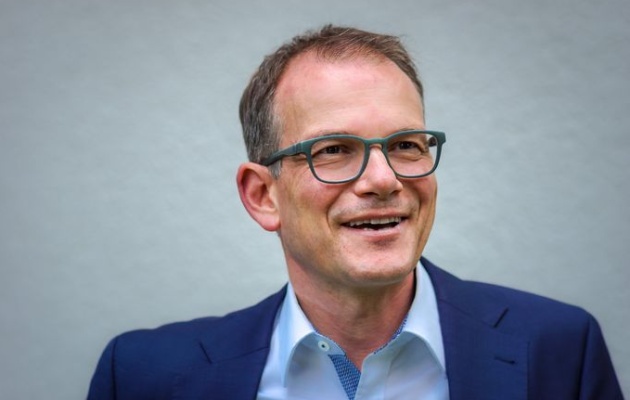Not every solution is helpful to address the church attendance crisis in Germany, say evangelicals
Reinhardt Schink of the Evangelical Alliance says “forms of church can be adapted” but warns against decisions that strengthen individualism and “weaken the community of believers”.
BERLIN · 02 FEBRUARY 2024 · 16:00 CET

Fewer and fewer Germans attend Sunday worship services. Thousands have left the major Christian denominations.
The historic national Protestant institution, the Evangelical Church in Germany (EKD), announced a loss of 575,000 members in 2022 (a drop of 2.9% of the total in a single year).
The vast majority of the 19.1 million members of this mainline Protestant Church (which had almost 6 million more in 2007) do not participate in church life, with figures showing only 3% regularly visit one of the 13,000 places of worship.
The EKD has sought creative solutions to the crisis. It appointed the youngest ever national synod president, Anne-Nicole Heinrich, a then 25-year-old theology student. It has experimented with new technologies, and launched major cultural and social programmes. The commemoration of the 500th anniversary of the Protestant Reformation in 2017 also was an opportunity to connect with society.
But the trickle of information about sexual abuses committed by spiritual leaders, the church’s political positions on issues such as the climate crisis, LGBT inclusion, or the rise of the hard right, have not helped the EKD’s ability to attract new people.
The Catholic Church, also in a crisis
The Roman Catholic Church, too, has readily acknowledged that it is experiencing “a profound crisis”. In 2021, the organisation lost 350,000 members, the biggest drop in years.
The 21.6 million Germans registered as Roman Catholics have watched as abuse scandals, internal debates around LGTBQI issues, and the theological division around the ministerial ordination of women have all led to division. Only 6% of Roman Catholics go to mass.
Meanwhile, free evangelical churches (with arond 5% of the population and much less presence on the ground) are going through diverse experiences. While charismatic or Pentecostal groups are growing slightly by about 1% per year, other more traditional free church movements are experiencing stagnation or slight declines.
Despite that more than half of the population belong to a Christian church, only 1.6% in Germany read the Bible every day.
What kind of changes are needed?
Faced with these difficulties, the Protestant Church of Rheinland (in the western region bordering with France) recently announced drastic changes.
Local church leaders will be able to choose to move their main worship service from Sunday morning to any other day or time of the week.
Also baptisms, weddings and confirmations can now take place at “the desired place” of the members. And to facilitate access to Holy Supper, it will be sufficient to have been baptised as an infant; it will no longer be necessary to have taken a confirmation course (which is usually done at the age of 14).
The changes have been criticised by those who consider that the end of the centrality osf Sundays in worship services has important theological connotations (Christ resurrected on a Sunday). There are also those who believe that not asking for a public expression of commitment to the Christian faith before taking the Lord’s Supper vanishes the significance of the reminder of Jesus’ death and resurrection.
Reinhardt Schink: “Church must remain missionary and relevant”
Evangelical Focus asked the general secretary of the German Evangelical Alliance (DEA) about this debate.

Reinhardt Schink, general secretary of the German Evangelical Alliance. “The Christian faith should be and remain relevant for people. To achieve this, the forms of church life sometimes need to be adapted. But not the content of faith”, Reinhardt Schink said in his answers.
“In view of technological developments, new social challenges and changing living conditions, the Evangelical Alliance in Germany welcomes all initiatives that help the church to remain missionary and the Christian faith to remain relevant to people”. According to him, “this is the aim of the proposals of the Evangelical Church in the Rhineland”.
“However, we doubt that these proposals will achieve this goal”, Reinhardt Schink told Evangelical Focus. “Instead, we see the danger that faith will become even more individualised, and the community of believers weakened”.
One more year
Learn all about our #OneMoreYearEF campaign here (English).
Published in: Evangelical Focus - europe - Not every solution is helpful to address the church attendance crisis in Germany, say evangelicals
